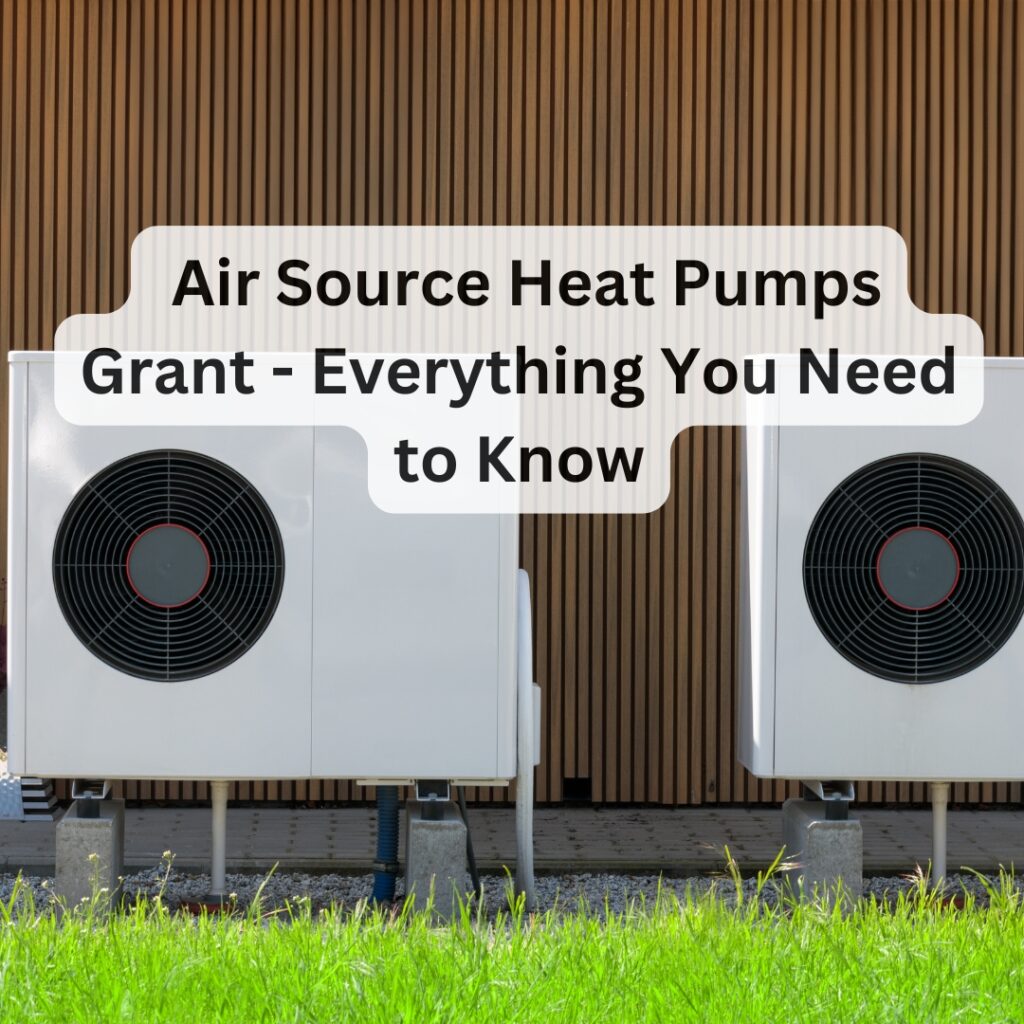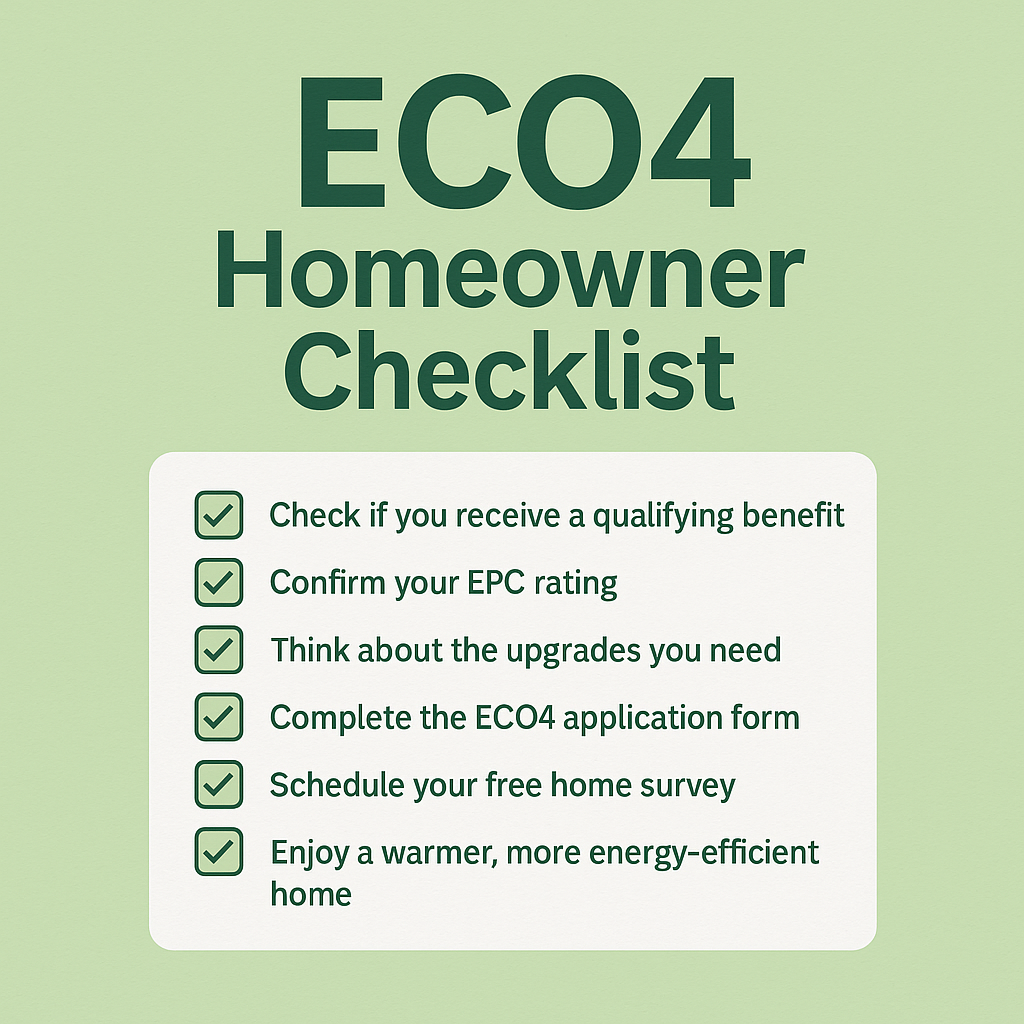Air Source Heat Pumps (ASHPs) are becoming increasingly popular in the UK as a renewable energy solution for heating homes. ASHPs work by absorbing heat from the outside air and using it to heat water in a cylinder, which then provides hot water and heating to radiators or underfloor heating systems. This technology can reduce your carbon footprint and lower your energy bills, making it an attractive option for homeowners.

To support the adoption of ASHPs, the UK government offers grants and financial support to eligible homeowners. The grants can cover up to £7,500 towards the cost of installing an ASHP, making it a more affordable option for many households. The government has also increased the grant amount by 50% to encourage more people to switch to renewable heating solutions.
If you are considering installing an ASHP, it is important to understand the eligibility criteria, application process, and the cost and savings involved. In this article, we will provide you with all the information you need to know about Air source heat pump grants or (ASHP as the are known) and financial support, so you can make an informed decision about whether this technology is right for your home.
Key Takeaways
-
- Air Source Heat Pumps (ASHPs) are a renewable energy solution for heating homes that can reduce your carbon footprint and lower your energy bills.
-
- The UK government offers grants and financial support of up to £7,500 towards the cost of installing an ASHP to eligible homeowners.
-
- To make an informed decision about installing an ASHP, it is important to understand the eligibility criteria, application process, and the cost and savings involved.
Understanding Air Source Heat Pumps
Air source heat pumps (ASHPs) are a type of heat pump that can be used for heating and cooling homes. They work by extracting heat from the air outside and using it to heat the home. ASHPs are energy-efficient and can help reduce your carbon footprint by reducing your reliance on fossil fuels.
Types of Air Source Heat Pumps
There are two main types of air source heat pumps: air-to-water and air-to-air systems. Air-to-water systems transfer heat to water, which can then be used to heat radiators or underfloor heating. Air-to-air systems transfer heat directly to the air and are used for heating and cooling homes.
Benefits of Air Source Heat Pumps
ASHPs have several benefits over traditional heating systems. They are energy-efficient and can save you money on your energy bills. They are also environmentally friendly and can help reduce your carbon footprint. Additionally, ASHPs are low maintenance and have a long lifespan, making them a good investment for your home.
Comparing Air-to-Water and Air-to-Air Systems
When choosing between air-to-water and air-to-air systems, there are several factors to consider. Air-to-water systems are more efficient at heating homes, but they require a separate system for cooling. Air-to-air systems are more versatile and can be used for both heating and cooling, but they are less efficient at heating. Ultimately, the choice between the two types of systems will depend on your specific needs and preferences.
Overall, air source heat pumps are a great option for energy-efficient heating and cooling. By reducing your reliance on fossil fuels, you can help reduce your carbon footprint and save money on your energy bills.
Grants and Financial Support
As part of the UK Government’s commitment to achieving Net Zero, there are several grants and financial support options available for homeowners and landlords looking to install Air Source Heat Pumps (ASHPs) in their properties.
Overview of Available Grants
There are various grants available to encourage people to move away from fossil fuel heating and towards renewable energy sources such as ASHPs. These grants are provided by the UK Government, energy suppliers, and regional authorities.
Boiler Upgrade Scheme
The Boiler Upgrade Scheme is a government grant that provides financial support to property owners to install low carbon heating systems such as ASHPs. The scheme offers a grant of up to £7,500 towards the cost and installation of an ASHP.
Regional Grants in England, Wales, and Scotland
There are also several regional grants available in England, Wales, and Scotland to support the installation of ASHPs. For example, Eco4 provides grants of up to £5,000 for homeowners in Scotland to install renewable heating systems. Warmer Homes Scotland is another scheme that provides financial support to homeowners and landlords in Scotland to improve the energy efficiency of their properties, including the installation of ASHPs.
It is important to note that to be eligible for these grants and financial support options, the ASHP must be installed by an MCS Certified installer and meet certain eligibility criteria set out by Ofgem.
Overall, there are several grants and financial support options available to help homeowners and landlords install ASHPs in their properties. These grants can help to offset the upfront costs of installation and make renewable heating systems more accessible to a wider range of people.
Eligibility Criteria
To be eligible for the Air Source Heat Pump grant, there are certain criteria that must be met. In this section, we will outline the requirements for properties, homeowners and landlords, and installer accreditation.
Property Requirements
The property must be a residential property within the United Kingdom. Most new build properties are not eligible for the grant. Additionally, properties that have already received government funding or support for a heat pump or biomass boiler are not eligible. The property must have a valid Energy Performance Certificate (EPC) with a rating of D or below. If the EPC rating is higher than D, the property must have a Green Deal Assessment Report.
Homeowner and Landlord Eligibility
Both homeowners and landlords are eligible for the grant. However, the property must be the primary residence of the homeowner or tenant. Landlords must provide proof that they have obtained consent from their tenants to install the air source heat pump.
Installer Accreditation
The installer must be MCS (Microgeneration Certification Scheme) certified. This ensures that the installer has the necessary skills and knowledge to install the air source heat pump safely and efficiently. The installer must also be registered with TrustMark, a government-endorsed quality scheme.
In conclusion, to be eligible for the Air Source Heat Pump grant, the property must be a residential property within the United Kingdom with a valid EPC rating of D or below. Both homeowners and landlords are eligible, but the property must be the primary residence of the homeowner or tenant. The installer must be MCS certified and registered with TrustMark.
Application Process
Applying for an Air Source Heat Pump grant is a straightforward process that can be completed online. In this section, we will outline the steps to apply for a grant, the required documentation, and the post-installation requirements.
Steps to Apply for a Grant
To apply for an Air Source Heat Pump grant, you will need to follow these steps:
-
- Check if you are eligible for the grant. To be eligible, you must be a homeowner or a private tenant. Your property must also have an Energy Performance Certificate (EPC) rating of D or lower. Additionally, your installer must be MCS certified.
-
- Get a quote from an MCS certified installer. You will need to provide the quote when you apply for the grant.
-
- Apply for the grant online. You will need to provide some basic information about yourself and your property, as well as the quote from your installer.
-
- If your application is successful, you will receive a voucher for the grant amount. You can then use the voucher to pay your installer.
Required Documentation
When applying for an Air Source Heat Pump grant, you will need to provide the following documentation:
-
- A quote from an MCS certified installer
-
- Proof of ownership or tenancy
-
- Proof of your property’s EPC rating
-
- Bank details for the payment of the grant
Post-Installation Requirements
After your Air Source Heat Pump has been installed, you will need to provide evidence that the installation has been completed. This evidence may include photographs of the installation, a signed certificate from your installer, or a Cavity Wall Insulation certificate if applicable.
It is also important to note that you may be required to have additional insulation installed as part of the grant scheme. This may include loft insulation, cavity wall insulation, or solid wall insulation. Your installer will be able to advise you on what insulation is required for your property.
In summary, applying for an Air Source Heat Pump grant involves checking your eligibility, getting a quote from an MCS certified installer, and applying online with the required documentation. After installation, you will need to provide evidence that the installation has been completed and may be required to have additional insulation installed.
Cost and Savings:
Initial Investment
Investing in an air source heat pump may seem like a significant expense, but it is important to consider the long-term savings and environmental benefits. The cost of an air source heat pump varies depending on the size of the heat pump, the size of the property, and whether it is a new build or an existing property. Typically, an air source heat pump costs around £14,000 to install. However, with the current grant scheme, households can receive a grant of up to £7,500 to help with the cost of installation. This means that the initial investment can be reduced by almost half, making it a more affordable option for many households.
Long-Term Savings
Air source heat pumps are highly energy-efficient and can significantly reduce household energy bills. According to the Energy Saving Trust, a typical air source heat pump could save a household between £1,000 and £2,000 per year on heating bills compared to an electric heating system.
Disclaimer: Actual savings depend on the customer’s existing fuel type, the efficiency of their property and heating system, energy prices, and system sizing.
Over the lifespan of the heat pump, this can add up to significant savings, making it a cost-effective option in the long run.
Grant Impact on Costs
The current grant scheme for air source heat pumps has increased the grant amount from £5,000 to £7,500, making it easier for households to afford the initial investment. In addition, the grant scheme has also increased the grant amount for ground source heat pumps from £6,000 to £7,500. This means that households can access a larger grant amount for both air source and ground source heat pumps, making it easier to switch to a more energy-efficient heating system.
It is also important to note that air source heat pumps are eligible for a reduced rate of VAT at 5%, compared to the standard rate of 20% for other heating systems. This can further reduce the overall cost of installation and make it a more affordable option.
Overall, the initial investment in an air source heat pump may seem high, but the potential savings on energy bills and the environmental benefits make it a worthwhile investment. With the current grant scheme and reduced VAT rate, households can access a more affordable option for switching to a more energy-efficient heating system.
Environmental Impact
Air source heat pumps are a low carbon heating option that can significantly reduce the carbon footprint of a building. By replacing fossil fuel heating systems that emit substantial CO2, air source heat pumps can reduce greenhouse gas emissions and help us transition from fossil fuels to renewable energy sources.
Reducing Carbon Emissions
According to the Department for Energy Security and Net Zero, air source heat pumps can reduce carbon emissions by up to 50% compared to gas boilers. This is because they use electricity to move heat from the outside air into the building, rather than burning fossil fuels to create heat.
Furthermore, the carbon footprint of an air source heat pump depends on the source of electricity used to power it. If the electricity comes from renewable sources such as wind or solar, the carbon footprint of the heat pump will be even lower.
Transitioning from Fossil Fuels
As we aim towards achieving net zero carbon emissions, transitioning away from fossil fuels is crucial. Air source heat pumps are a key technology in this transition, as they offer a low carbon alternative to traditional fossil fuel heating systems.
By installing air source heat pumps, we can reduce our dependence on fossil fuels, which are finite resources and contribute to climate change. Instead, we can harness the power of renewable energy sources to heat our buildings in a sustainable and environmentally friendly way.
In conclusion, air source heat pumps have a positive environmental impact by reducing carbon emissions and helping us transition away from fossil fuels. By choosing low carbon heating options like air source heat pumps, we can contribute to the fight against climate change while still keeping our homes and buildings warm and comfortable.
Installation and Maintenance
Choosing a Qualified Installer
When it comes to installing an air source heat pump, it is important to choose a qualified installer who is experienced in fitting these systems. We recommend that you use a heating engineer who is registered with a professional body such as the Gas Safe Register or the Oil Firing Technical Association (OFTEC).
Another key certification to look out for is the Microgeneration Certification Scheme (MCS) certification. This certification ensures that the installer has undergone the necessary training and has the required experience to install your air source heat pump safely and efficiently.
Understanding the Installation Process
The installation process for an air source heat pump will vary depending on the type of system you choose and the size of your property. However, in general, the process will involve the following steps:
-
- Site survey: The first step is to carry out a site survey to assess the suitability of your property for an air source heat pump. This will involve looking at factors such as the size of your property, the insulation levels, and the type of heating system you currently have in place.
-
- System design: Once the site survey has been completed, the installer will then design a system that is tailored to your property’s specific requirements. This will include selecting the right size and type of heat pump, as well as designing the distribution system that will deliver the heat to your home.
-
- Installation: The installation process will typically take a few days to complete, depending on the complexity of the system. During this time, the installer will fit the heat pump, install the distribution system, and connect the system to your existing heating and hot water systems.
-
- Commissioning: Once the installation is complete, the installer will commission the system to ensure that it is working correctly and efficiently. This will involve testing the system and making any necessary adjustments to ensure that it is operating at peak performance.
Maintenance and Upkeep
To ensure that your air source heat pump continues to operate efficiently and effectively, it is important to carry out regular maintenance and upkeep. This will help to extend the lifespan of the system and reduce the risk of breakdowns and repairs.
We recommend that you have your system serviced by a qualified heating engineer at least once a year. During the service, the engineer will carry out a range of checks and tests to ensure that the system is working correctly and efficiently. They will also clean the system and carry out any necessary repairs or replacements.
In addition to regular servicing, it is important to carry out basic maintenance tasks yourself, such as cleaning the filters and checking the pressure gauges. This will help to keep your system running smoothly and reduce the risk of breakdowns.
Overall, with proper installation and maintenance, an air source heat pump can provide a reliable and efficient source of heating for your home.
Health and Well-being Benefits
Air source heat pumps not only provide an efficient and cost-effective way to heat your home, but they also offer several health and well-being benefits. In this section, we will discuss the impact of air source heat pumps on indoor air quality and the benefits they offer for respiratory and circulatory health.
Impact on Indoor Air Quality
Indoor air quality is a significant concern for homeowners, especially those with chronic respiratory or mental health conditions. Air source heat pumps can improve indoor air quality by reducing the amount of dust, pollen, and other allergens in the air. They also help to eliminate the need for combustion appliances, which can produce harmful pollutants such as carbon monoxide.
Air source heat pumps work by circulating air through a filter, which removes impurities from the air. This means that the air inside your home is cleaner and healthier to breathe. Additionally, air source heat pumps do not produce any emissions, making them an environmentally friendly heating option.
Benefits for Respiratory and Circulatory Health
Air source heat pumps can also provide several benefits for respiratory and circulatory health. For individuals with chronic respiratory conditions such as asthma or COPD, air source heat pumps can help to reduce symptoms such as coughing, wheezing, and shortness of breath. This is because air source heat pumps do not produce any dry air, which can irritate the airways and exacerbate respiratory symptoms.
Furthermore, air source heat pumps can improve circulation by maintaining a consistent temperature throughout the home. This can help to reduce the risk of circulatory problems such as varicose veins and cold feet. By keeping the home at a comfortable temperature, air source heat pumps can also help to reduce stress and anxiety, which can have a positive impact on mental health.
In conclusion, air source heat pumps offer several health and well-being benefits, including improved indoor air quality and benefits for respiratory and circulatory health. By choosing an air source heat pump for your home, you can enjoy a comfortable and healthy living environment while also reducing your carbon footprint.
Frequently Asked Questions
What are the eligibility criteria for receiving a government grant for an air source heat pump?
To be eligible for the government grant, homeowners in England must have a primary heating system that is more than five years old. Additionally, the property must have adequate insulation, and the heat pump must be installed by an MCS-certified installer. The grant is only available for the installation of an air source heat pump, and not for the replacement of an existing one.
How can self-builders apply for an air source heat pump grant?
Self-builders can apply for an air source heat pump grant through the same process as other homeowners. They must ensure that they meet the eligibility criteria and that the heat pump is installed by an MCS-certified installer.
What is the process for applying for an air source heat pump grant through Octopus Energy?
Octopus Energy is one of the approved suppliers of the Government’s Green Homes Grant Scheme. To apply for a grant through Octopus Energy, homeowners must first complete an online survey to see if their property is eligible. If the property is eligible, a surveyor will visit the property to provide a quote. Once the quote is accepted, the installation will be scheduled.
What are the requirements for landlords to obtain grants for heat pump installations?
Landlords can apply for the Green Homes Grant Scheme to install air source heat pumps in their rental properties. However, they must ensure that they meet the eligibility criteria and that the installation is carried out by an MCS-certified installer. Additionally, the property must have an Energy Performance Certificate (EPC) rating of E, F, or G.
Is there a specific Energy Performance Certificate (EPC) rating needed to qualify for a heat pump grant?
To be eligible for the Green Homes Grant Scheme, the property must have an EPC rating of D or below. However, if the property has an EPC rating of E, F, or G, landlords can still apply for the grant to install air source heat pumps.
Are there any regional differences in England and Wales regarding the availability of air source heat pump grants?
No, the Green Homes Grant Scheme is available to homeowners and landlords across England and Wales. However, it is worth noting that the grant is only available for the installation of air source heat pumps, and not for the replacement of an existing one.



